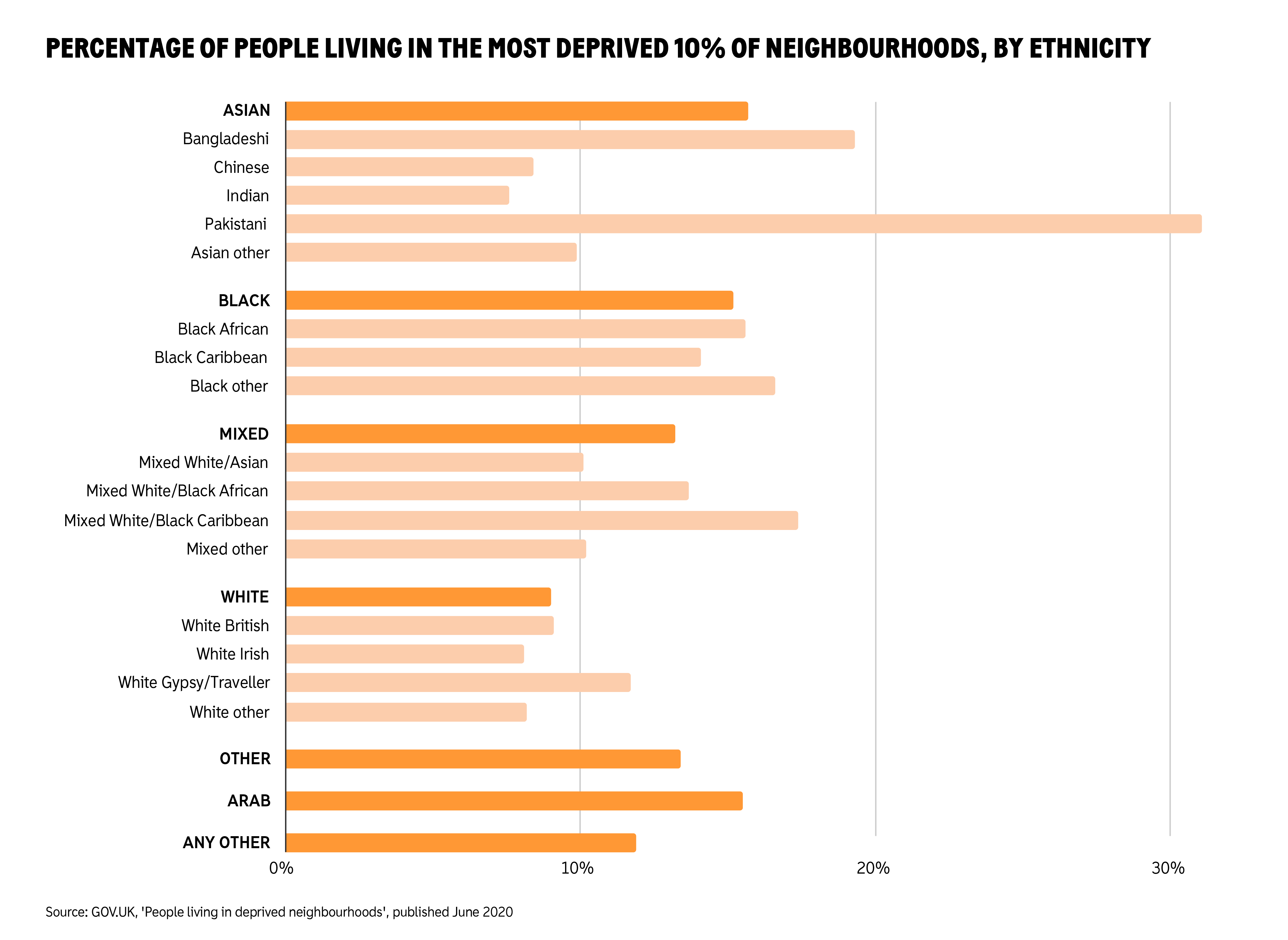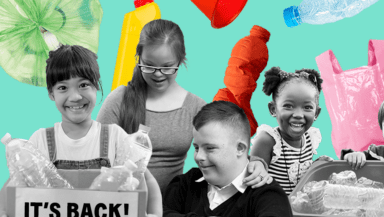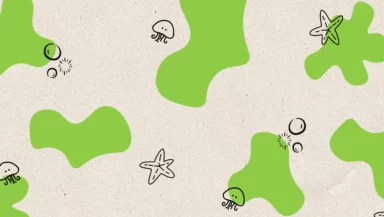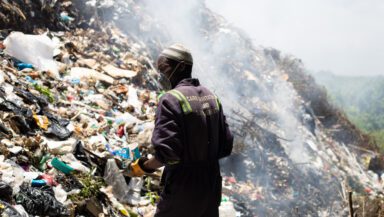Did you know that almost half of the two billion pieces of plastic that the UK throws away each week isn’t going back into the recycling system? It’s being set on fire.
In 2022, thousands of people joined The Big Plastic Count – the UK’s biggest investigation into household plastic waste. It revealed that just 12% of the UK’s plastic is recycled, yet 46% is burned to create energy (a process known as incineration).
Worrying is an understatement. Burning plastic is dangerous for both people and planet, impacting the climate, releasing highly toxic gases, and unfairly impacting deprived neighbourhoods.
Incinerators are three times more likely to be built in deprived neighbourhoods
An Unearthed investigation revealed that incinerators are three times more likely to be built in deprived neighbourhoods.
The investigation also showed that people of colour are more likely to live in these affected communities. This makes incineration an issue of race and class justice, as well as environmental harm.
In the UK, nine out of 10 most deprived towns and cities are in the north. And there is a connection between ethnic diversity and deprivation.

Living in a deprived neighbourhood has been shown to cause poor physical and mental health – more so if you’re living beside an incinerator that’s choking the air with toxic gases.
Incineration is racist and classist
It’s disgraceful that, instead of sorting out plastic properly, the government is burning waste in neighbourhoods already struggling for basic services. This is felt by residents near ‘EcoPark’ in Edmonton – an incinerator in one of the most deprived areas in England, where 65% of residents are people of colour. Delia Mattis, a campaigner from Enfield Black Lives Matter, said:
“We need to be calling this what it is: racism. These industries know that when they place an incinerator in an area like Edmonton, people won’t get involved in campaigns against it. They are already tired from fighting against racial oppression and injustice all their lives.”
On the other side of the economic fence, an incinerator was rejected by Cambridgeshire County Council. They said it wasn’t “in keeping with the listed and historic buildings in the area.”
Deprived communities are suffering the effects of plastic incineration – as are the people of colour who are most likely to live there. Meanwhile, wealthy, majority-white communities are more likely to be protected – often in the name of preserving beautiful views.
Everyone in the UK deserves the right clean air and a healthy, thriving community. Banning new incinerators is one step closer to achieving this.
We can’t burn our way out of this
We are in the grip of a national plastic waste crisis. Far too often, the UK either burns plastic or sends it abroad for others to deal with. This raises another social justice issue, as most waste exports go to low and middle income countries. Instead of making a mess of waste management, we need to stop plastic at the source.
That’s why, this year, The Big Plastic Count is back, and we’re setting our sights even higher. Talks have begun for The Global Plastics Treaty – a once-in-a-lifetime chance to push for proper action on plastic. With your help, we’re going to use this year’s findings to convince world-leaders that The Global Plastics Treaty needs to be as strong as possible. If they set ambitious limits on plastic production, there will be less plastic for the incinerators to burn. This will free communities from the harmful impacts of burning plastic. It will also push the government, brands, and businesses to invest in refill and reuse schemes that work for everyone.
With you on our team, we’ll make that vision a reality. So join The Big Plastic Count and start investigating. Together, we’ll get the plastics crisis under control.



